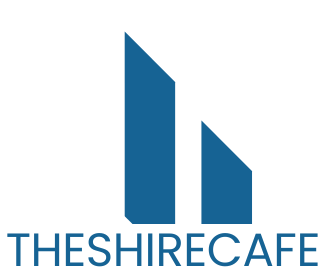Navigating the world of home financing can be daunting, especially for first-time buyers. The Federal Housing Administration (FHA) offers a range of benefits designed to make homeownership more accessible and affordable. With lower down payment requirements and more flexible credit standards, FHA loans are an attractive option for many aspiring homeowners.
Understanding the advantages of FHA loans can empower buyers to make informed decisions. From competitive interest rates to the ability to finance closing costs, these benefits can significantly ease the financial burden of purchasing a home. As more people seek to invest in real estate, exploring FHA options is essential for unlocking the door to homeownership.
Table of Contents
ToggleOverview of FHA Benefits
FHA loans provide several advantages for prospective homeowners.
- Lower Down Payment: FHA loans require a minimum down payment of 3.5%, significantly less than conventional loans, which often require 10% or more.
- Flexible Credit Standards: FHA loans accommodate borrowers with lower credit scores. Individuals can qualify with scores as low as 580, while some lenders may approve scores down to 500 with a higher down payment.
- Competitive Interest Rates: FHA loans often feature lower interest rates compared to conventional loans, reducing overall borrowing costs.
- Financing Closing Costs: Borrowers can include closing costs within the loan, decreasing upfront expenses during the purchase process.
- Assumable Loans: FHA loans can be transferred to a subsequent buyer, allowing for a smoother sale process and potentially lower rates for the new buyer.
- Mortgage Insurance Premiums: FHA loans generally have lower premium rates compared to conventional loans, aiding affordability.
- Government Backing: FHA loans are insured by the government, which increases lender confidence, particularly in cases of borrower default.
These benefits position FHA loans as a strong option for first-time homebuyers and those with less-than-perfect credit histories.
Accessing FHA Loans


Accessing FHA loans involves meeting specific eligibility requirements and following a straightforward application process. These loans cater to a range of borrowers, particularly those seeking affordable home financing options.
Eligibility Requirements
Eligibility for FHA loans primarily hinges on the applicant’s credit score, employment history, and debt-to-income ratio.
- Credit Score: Borrowers with credit scores starting at 580 qualify for a 3.5% down payment. Those with scores between 500 and 579 may still obtain FHA loans but must provide a minimum 10% down payment.
- Employment History: Applicants should demonstrate steady employment for the past two years, ensuring sufficient income stability.
- Debt-to-Income Ratio: A maximum debt-to-income ratio of 43% is common for approval, although exceptions can occur depending on compensating factors.
Application Process
The FHA loan application process involves several key steps that streamline obtaining financing.
- Pre-Qualification: Prospective borrowers should start by getting pre-qualified through a lender experienced with FHA loans. This step provides an estimate of how much they can borrow.
- Gather Documentation: Collect necessary documents, including proof of employment, tax returns, bank statements, and identification. Organized documents facilitate quicker processing.
- Complete Application: Submit the loan application through the chosen lender. Information will include financial details and the desired loan amount.
- Appraisal and Underwriting: An FHA-approved appraiser evaluates the property to ensure it meets FHA guidelines. Post-appraisal, the application moves to underwriting for final approval.
- Closing Process: After approval, finalize the closing process by signing the mortgage documents. Buyers may be allowed to finance closing costs, easing upfront financial burdens.
These steps outline how individuals can effectively access FHA loans, bringing them closer to homeownership.
Financial Advantages of FHA Loans
FHA loans offer several financial advantages that make homeownership accessible, especially for first-time buyers. These benefits include lower down payments and competitive interest rates.
Lower Down Payments
FHA loans require a minimum down payment of only 3.5%. This low initial investment makes it easier for buyers to enter the housing market. Individuals with a credit score of at least 580 qualify for this down payment percentage, easing the burden of saving for a larger down payment found in conventional loans. For those with credit scores between 500 and 579, a higher down payment of 10% is necessary. This flexibility broadens access to homeownership, especially for those with limited savings.
Competitive Interest Rates
FHA loans often feature competitive interest rates compared to conventional loans, which provides financial relief over the lifespan of the mortgage. Interest rates can be lower due to government backing, which reduces risk for lenders. A lower interest rate translates directly to reduced monthly payments, facilitating affordability. Furthermore, the potential for lower mortgage insurance premiums enhances financial flexibility, allowing buyers to allocate funds for other expenses.
FHA Loan Types and Their Benefits
FHA loans come in different types, each offering distinct advantages tailored to various borrower needs. Understanding these options can help individuals choose the right mortgage for their financial situation.
Fixed-Rate Mortgages
Fixed-rate FHA mortgages provide stability through consistent monthly payments over the loan’s term, typically 15 or 30 years. This predictability protects borrowers from fluctuating interest rates, allowing for better financial planning. Borrowers appreciate lower down payment requirements of just 3.5%, enabling easier entry into homeownership. Additionally, fixed-rate loans cater to those with credit scores as low as 580, expanding access to financing opportunities. This type of mortgage benefits long-term homeowners seeking stable monthly payments without unexpected changes.
Adjustable-Rate Mortgages
Adjustable-rate FHA mortgages come with initial low fixed rates, transitioning to adjustable rates after a specified period, often 5, 7, or 10 years. Borrowers benefit from lower initial monthly payments, making homeownership more affordable during the early years of the loan. While these loans carry some risk due to potential rate increases, they often attract those planning to sell or refinance before the adjustment period begins. Moreover, adjustable-rate mortgages still accommodate borrowers with credit scores starting at 580, promoting wider access to financing. This option suits individuals seeking lower upfront costs while being prepared for rate adjustments in the future.
FHA Benefits for First-Time Homebuyers
FHA loans offer several advantages tailored specifically for first-time homebuyers. These benefits simplify the home buying process and make homeownership more attainable.
Support and Resources
FHA loans provide access to various support programs designed for first-time buyers. These programs often include down payment assistance grants and homebuyer education courses. Participants in education courses gain insights into budgeting, financing, and the home buying process. Additionally, the FHA maintains a network of approved lenders committed to helping borrowers navigate their options effectively. These resources enhance the likelihood of successfully obtaining a mortgage and achieving homeownership.
Lower Risk for Lenders
FHA insurance reduces risks for lenders, encouraging them to offer loans to buyers who may not qualify for conventional financing. The FHA backs loans up to certain limits, allowing lenders to feel more secure in their investments. Because of this backing, lenders often establish more lenient qualification criteria, such as lower credit scores and higher debt-to-income ratios. This enhanced lender confidence translates into greater accessibility for buyers, particularly those with limited credit histories.



